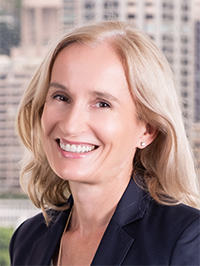Corruption angst in Singapore
by Jane Moir, ACGA
A graft probe involving a cabinet minister could be good for business, writes ACGA’s Head of Research Jane Moir
It is a rare thing in Singapore for a high-profile government official to be embroiled in a corruption scandal. For decades, graft allegations have tended to be levelled only at the lowly rank-and-file in the public sector, if at all.
Singapore, like its frenemy Hong Kong, enjoys a reputation for having well-paid civil servants of good standing. When it comes to public contracts and dealings with officials, both are regarded as clean places to do business.
Indeed, Transparency International’s perceptions index places Singapore as first in Asia in terms of how its people, and outsiders, view its corruption situation. Globally in 2022 it ranked 5th, well head of the UK, Canada, and the US. Hong Kong took 12th place.
It is no wonder officials in Singapore are flustered over the arrest of transport minister S. Iswaran on 11 July. The 61-year-old is being investigated by the Corrupt Practices Investigation Bureau (CPIB), along with Hotel Properties tycoon Ong Beng Seng, who partly owns the franchise for Formula One racing in Singapore. Both are reportedly on bail.
The last time a government official of such senior rank came under scrutiny for graft in Singapore was in 1986 when Teh Cheang Wan, then minister for national development, was accused of accepting bribes. He died before charges could be laid against him.
Since then, Singapore has defied the odds as markets such as Hong Kong put major politicians in the dock (chief secretary for administration Raphael Hui Si-yan and chief executive Donald Tsang Kam-yuen were jailed for corruption in 2014 and 2017 respectively). Malaysia’s former prime minister Najib Razak meanwhile was convicted in August 2022 over the 1MDB corruption scandal.
One reason to doubt Singapore’s record of probity is the tendency for corruption cases to focus on low-level cadres and pedestrian businesspeople, where crude kickbacks to ace a driving test or scam a bank loan tend to keep graft-busters busy. These cases have a near 100% conviction rate. It would be refreshing to see a high-profile trial where government prosecutors occasionally lose.
Everyone is guilty
At the low end of the scale there is no doubt Singapore’s ‘zero tolerance’ policy toward corruption is zealously enforced: the October 2022 decision to charge an auxiliary police officer with accepting bribes of S$227 in tobacco products a case in point.
The CPIB dealt with 234 corruption complaints in 2022 and pursued 83 of these. The majority—71 cases—came from the private sector. During the year only four of the 152 individuals prosecuted for corruption in Singapore were public servants.
Private sector cases in recent years vary from directors at engineering firms receiving free business class flights and travel expenses in return for contracts, to the July 2022 jail term given to a man who gave a S$10,000 bribe for giving false evidence.
In 2022, the conviction rate for corruption was 99%. Since 2016, the figure has hovered between 97% and 100%. Hong Kong in comparison convicts in around 80% of cases, up from around 65% over the past decade.
Wither the legal jeopardy?
Conspicuously absent are high-profile individuals and companies being put on trial where the sums involved are titanic, the corruption is particularly toxic or where reputational damage has the potential to permeate top corporate boardrooms and the Singapore elite.
A high-stake trial replete with magic circle lawyers, big-name defendants and daily headlines can be a formidable—and expensive—experience for justice departments. But they boost credibility, as does a conviction rate which hovers in a more modest 60 to 70 percentile range.
Earlier this year, Singapore failed to roll the dice in the Keppel case, which judging by the public reaction, did more harm than good. It emerged in February 2018 that the CPIB was investigating former Keppel Offshore & Marine executives in relation to a Brazil bribery scandal: law enforcers in the United States had just levied a US$442m penalty on Keppel and its US subsidiary to resolve a 10-year US$55m bribery scheme to win contracts in Brazil.
The US Department of Justice completed the case with Singapore’s assistance. Yet the evidence was not sufficient for the CPIB to take Keppel to task at home, in January 2023 instead issuing ‘stern warnings’ to six former executives at the firm in lieu of prosecution.
It is early days in the case of Singapore’s transport minister, but already politicians are on the back foot for not disclosing the investigation to its residents sooner. It is hoped this shows the administration recognises public disquiet over the Keppel outcome.
Should the case proceed to trial, it could be long, expensive and politically uncomfortable. But whether it is the cabinet minister in the dock, or the next high-profile figure, Singapore’s credibility would benefit from showing the house doesn’t always win.
Download File Disclaimer
In addition to the ACGA website disclaimer access to the "Members' Area" of the ACGA website is subject to the general disclaimer and content attribution statements below.
General Disclaimer
By logging into our Members' Area you acknowledge that all materials displayed on the site or made available for download are for the exclusive use of ACGA members. You may not share the content with parties outside of your organisation.
Content Attribution
The copyright ownership of all material on our website belongs to ACGA. Should you wish to use any materials in the course of your corporate research, including directly quoting or paraphrasing sections, reprinting, reproducing or the like, we request that you give proper acknowledgement to ACGA and share a copy with us. Please email [email protected].


 Jane Moir
Jane Moir